Our Library
Explore our publications, from research papers and series to educational materials, covering all aspects of conflict transformation and peace promotion.
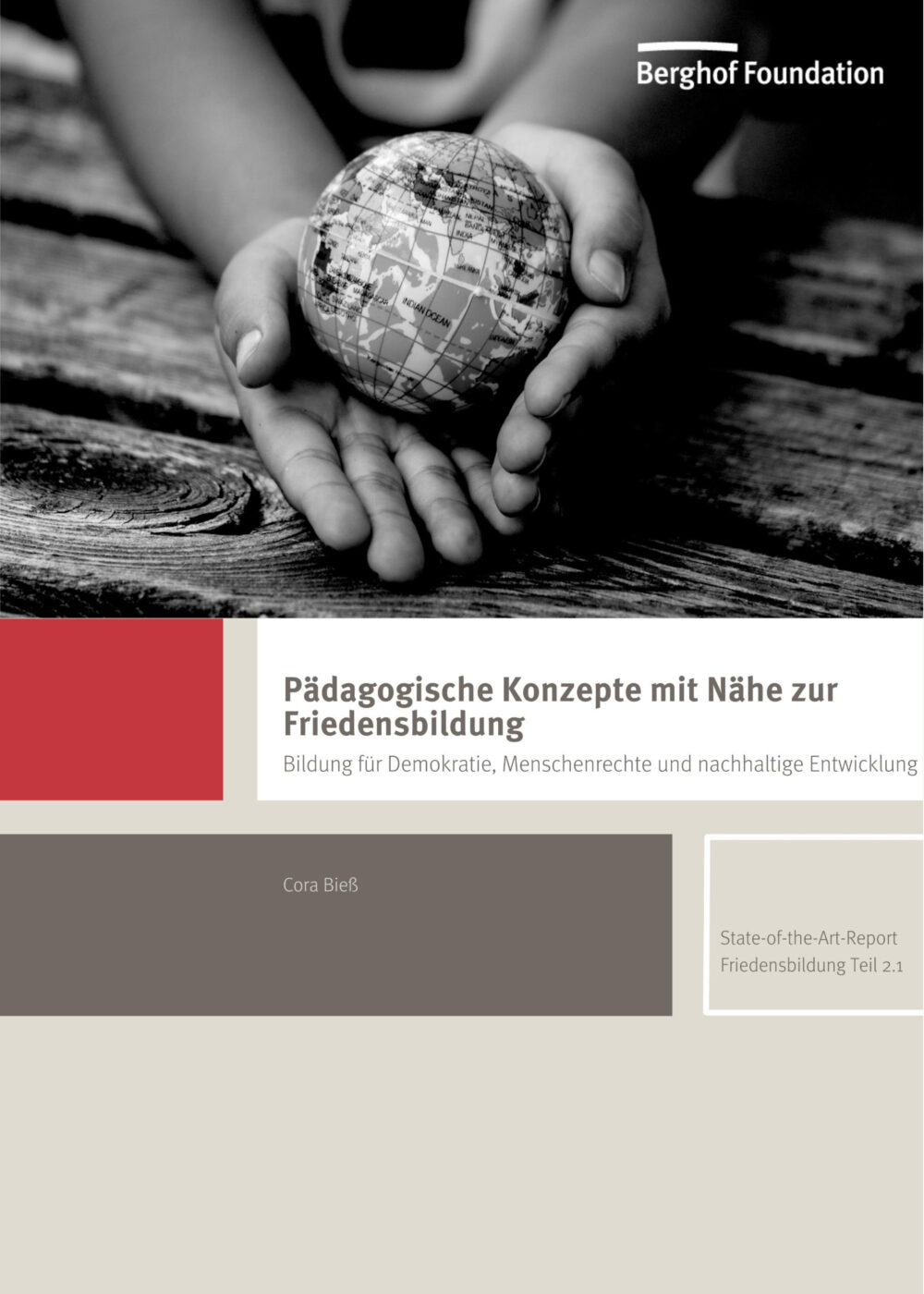
Pädagogische Konzepte mit Nähe zur FriedensbildungBildung für Demokratie, Menschenrechte und nachhaltige Entwicklung
Das Paper setzt Friedensbildung in Bezug zu verschiedenen Nachbardisziplinen, wie der politischen Bildung, dem globalen Lernen, der entwicklungspolitischen Bildung, der Menschrechtsbildung, der Demokratiepädagogik, der Global Citizenship Education, der (inter-)religiösen Bildung, der Umweltbildung und der Bildung für nachhaltige Entwicklung (BNE).
- Year2022
- Author(s)Cora Bieß
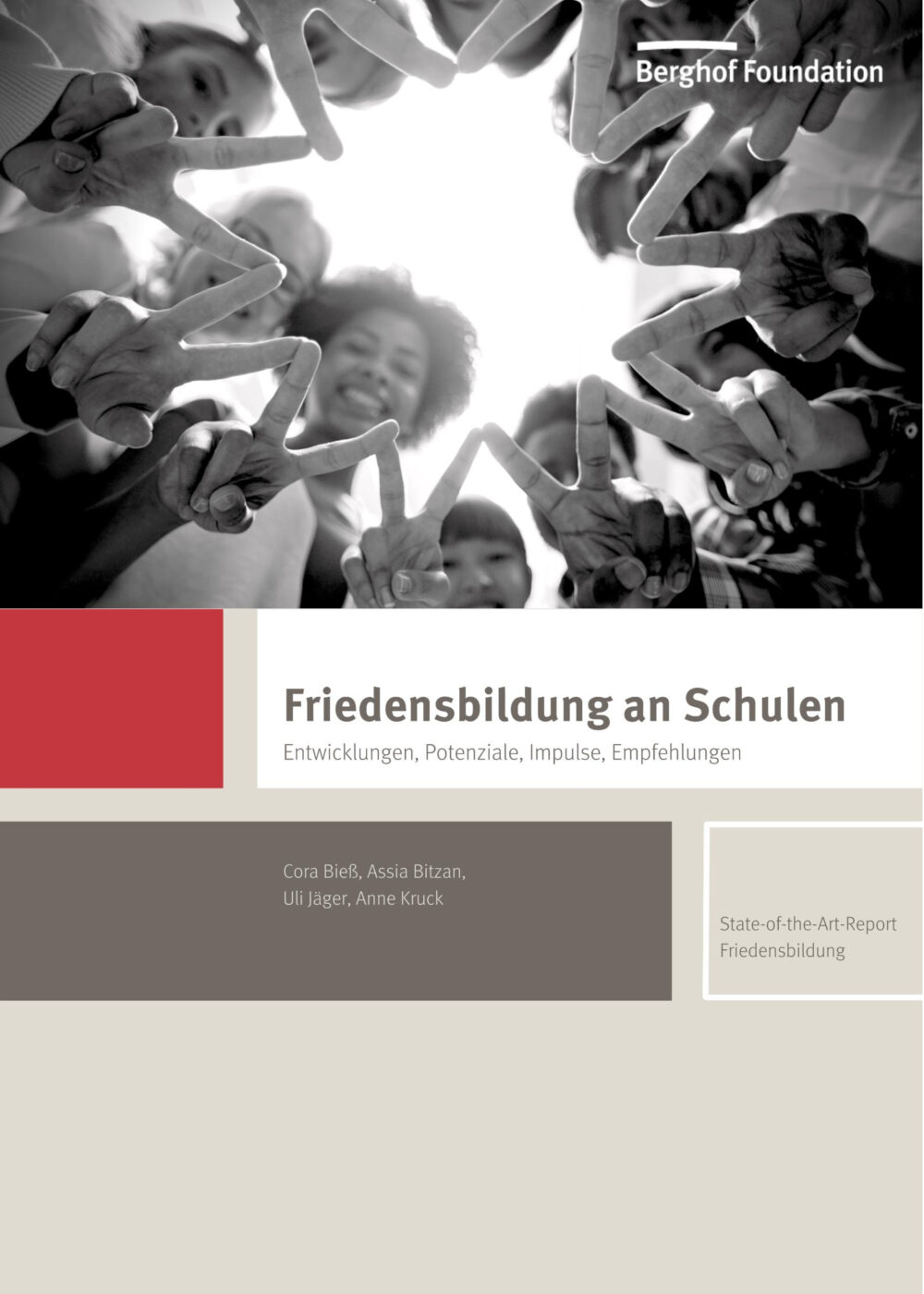
Friedensbildung an SchulenEntwicklungen, Potenziale, Impulse, Empfehlungen
In diesem umfassenden Bericht zu Friedensbildung im deutschsprachigen Raum, schaffen wir einen Überblick zu aktuellen Entwicklungen, Ansätzen und Chancen der Friedensbildung. Unsere Forschung zeigt, dass Friedensbildung nicht nur hochaktuell ist, sondern gerade im schulischen Kontext an Bedeutung gewinnt. Wir schlussfolgern damit, dass Friedensbildung nur dann weitflächig und nachhaltig einen Unterschied macht, wenn sie strukturell im Bildungssystem verankert ist und sich auf qualifiziertes Lehrpersonal und außerschulische Bildungsakteur*innen stützen kann.
- Year2022
- Author(s)Cora Bieß, Assia Bitzan, Uli Jäger, Anne Kruck
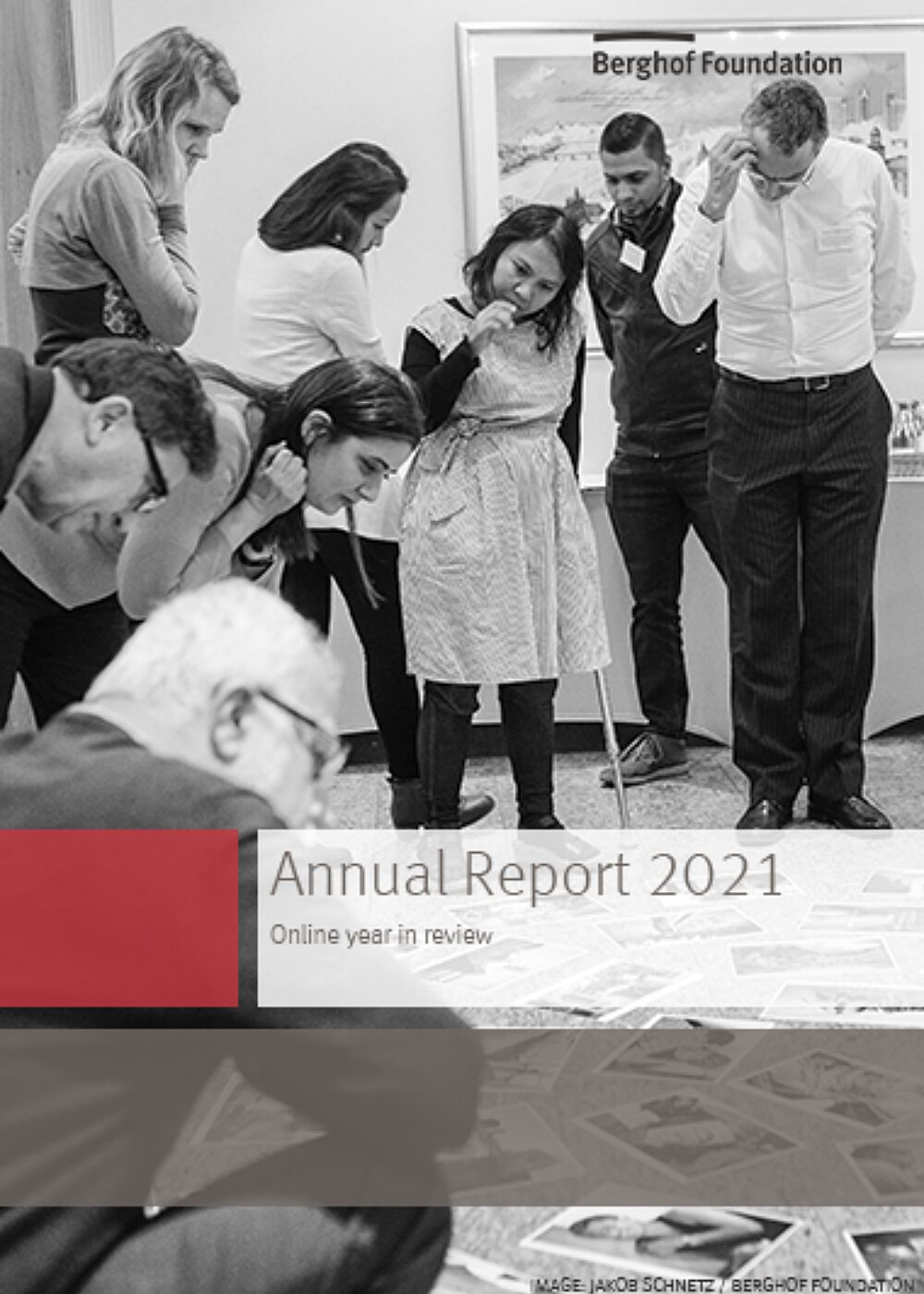
Berghof Foundation Annual Report 2021Online year in review
Our 2021 annual report gives an overview of our work around the world during the year as well as insights into our finances and funding.
- Year2022
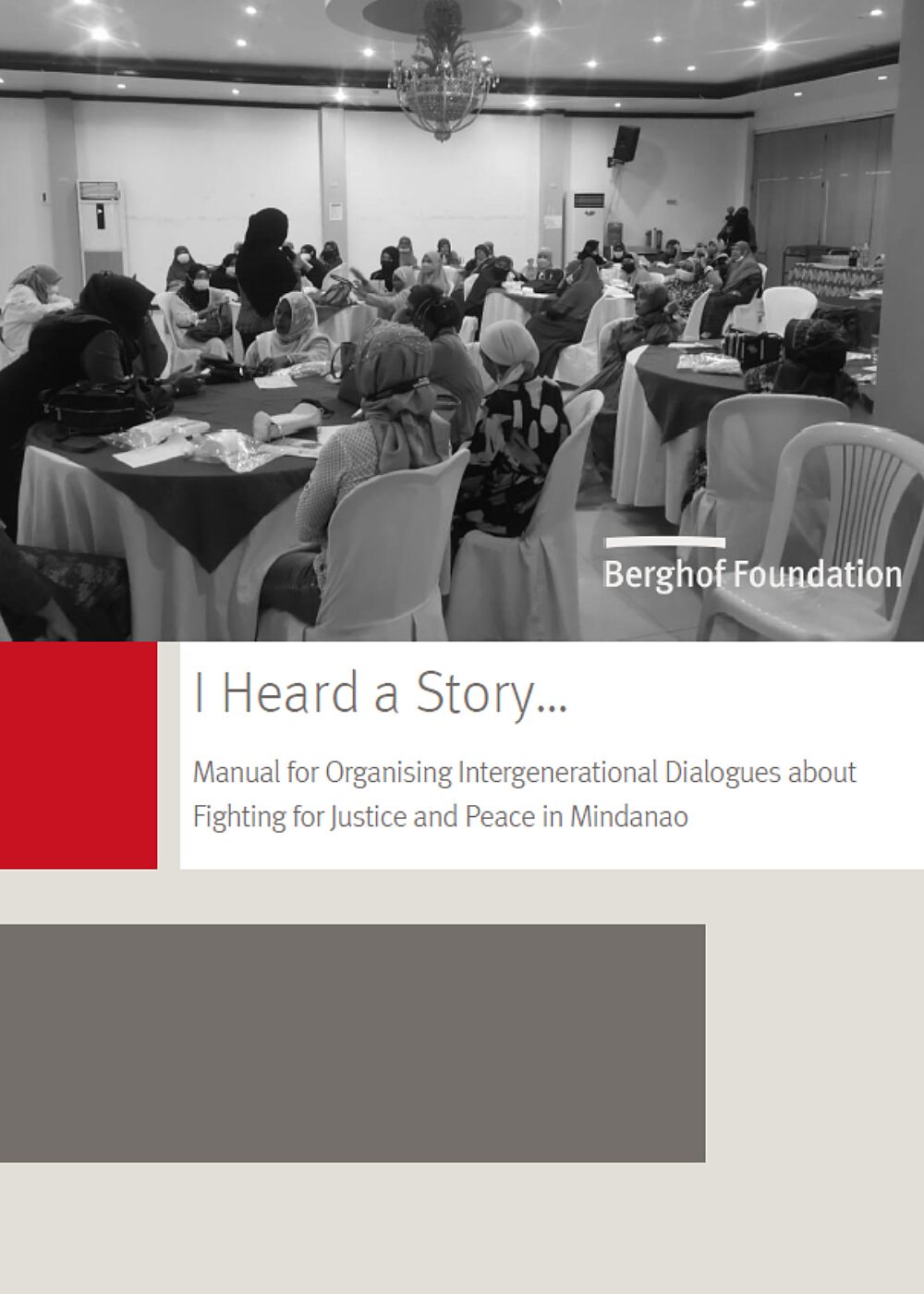
I Heard A Story...Manual for organising intergenerational dialogues about fighting for justice and peace in Mindanao
This manual accompanies the documentation of intergenerational voices of women who were involved in the struggles for social, economic and political equality in Mindanao. These documentaries, in film and in print, give rich opportunity for reflection and discussion - among former female combatants, their children, but also more generally for those supporting a peacebuilding path for communities in the Philippines and beyond. The manual combines the films and storytelling booklet produced with a simple guide of how to organize, structure and harvest dialogues using them with an aim to strengthen peacebuilding action.
- Year2022
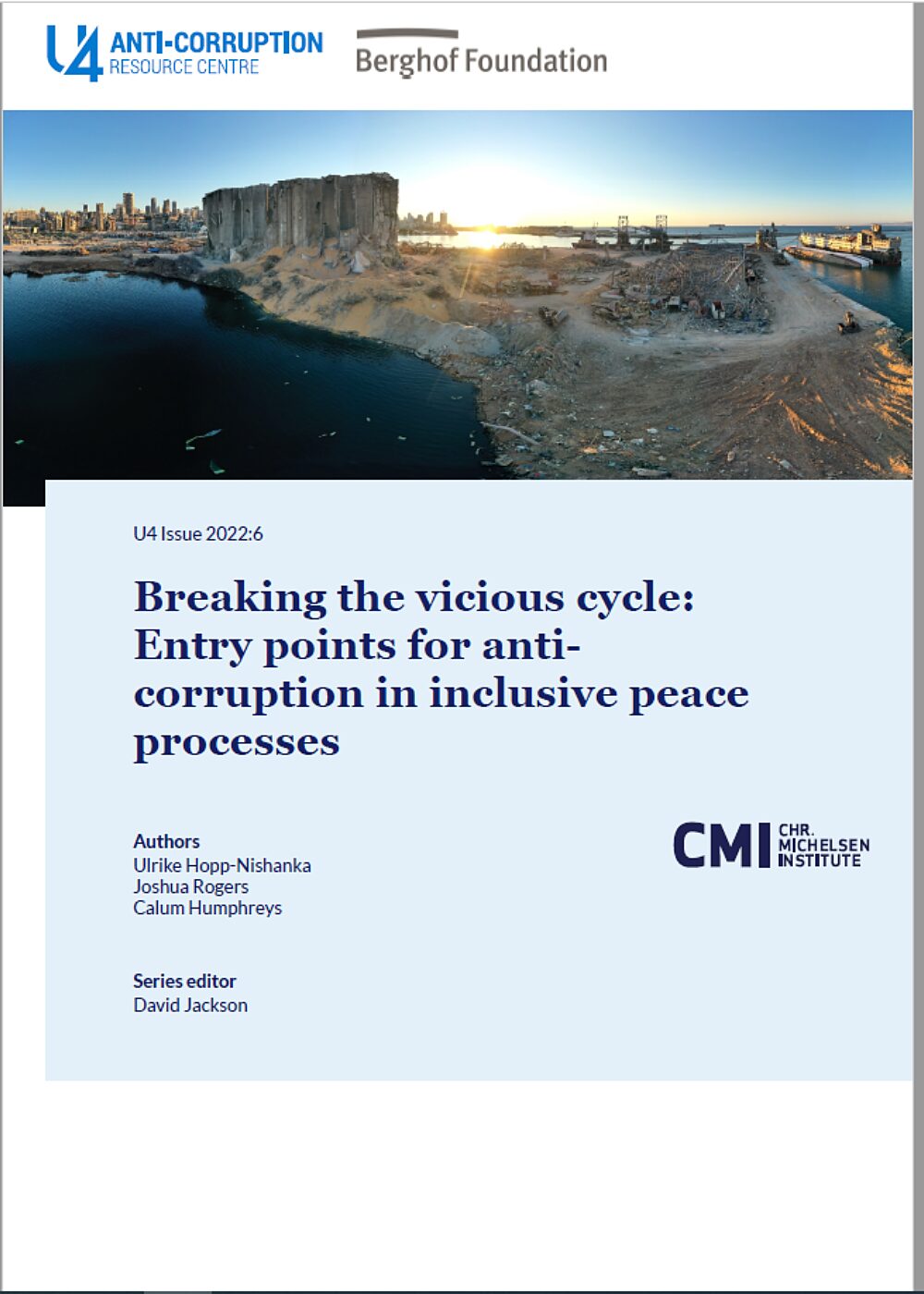
Breaking the vicious cycleEntry points for anti-corruption in inclusive peace processes
Corruption and violent conflict are interlinked in deep and complex ways. This U4 Issue considers how corruption as an element of conflict systems could be addressed during peace processes and how peacebuilders can support political efforts to curb corruption and promote accountability during transitions from war to peace. Now is the time to bridge the contributions of peacebuilding and anti-corruption practitioners in the quest for a sustainable transformation process.
- Year2022
- Author(s)Ulrike Hopp-Nishanka, Joshua Rogers, Calum Humphreys
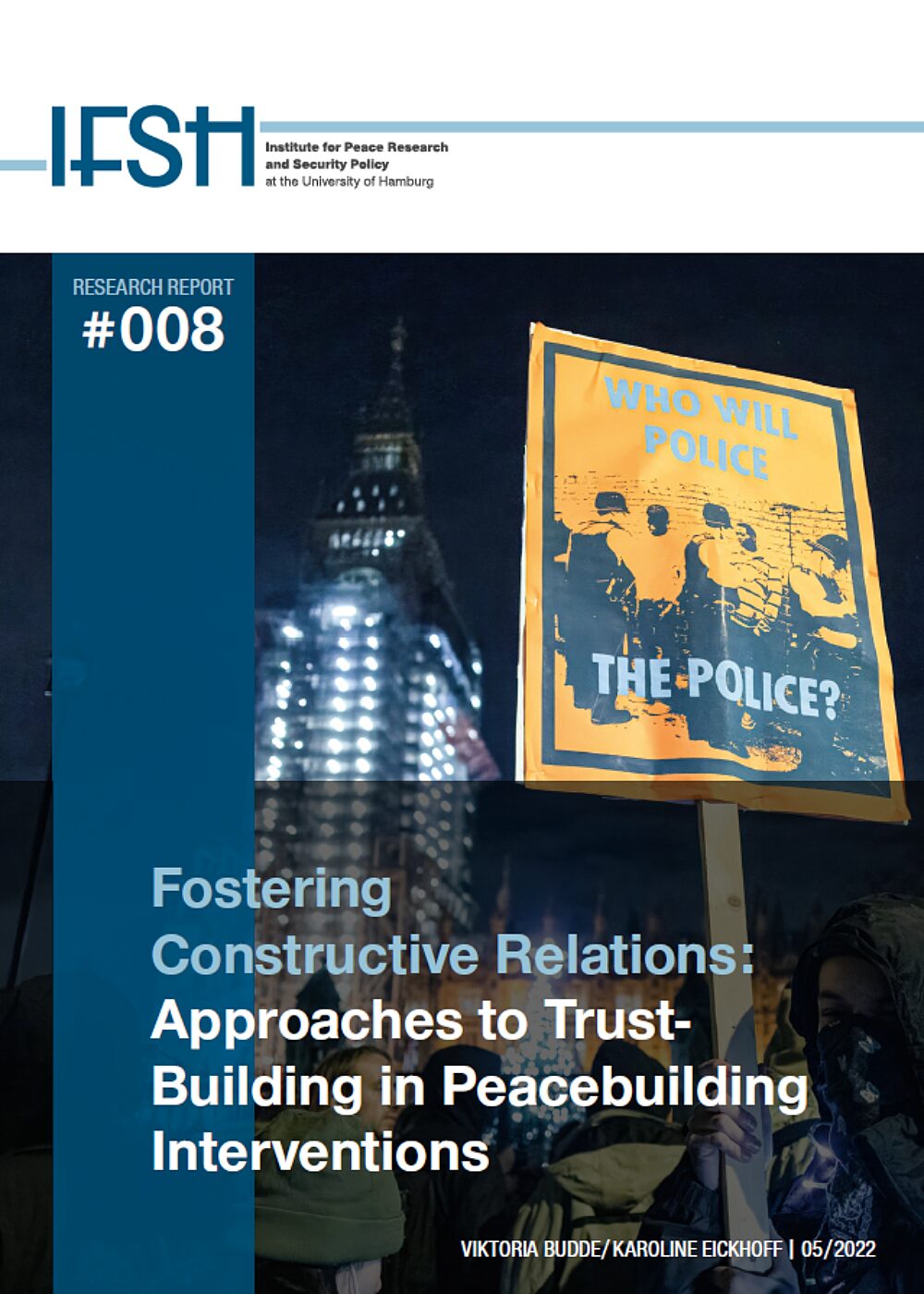
Fostering constructive relationsApproaches to trust-building in peacebuilding interventions
The international community is currently facing a dilemma: although building trust between representatives of state institutions and the population is one of the fundamental components of cooperation between donors and recipient countries of support services in the security sector, we are observing worldwide that trust in state institutions fades. Confidence-building initiatives between citizens and, for example, the police and the military obviously do not always contribute to improvement. Therefore, basic assumptions about the role of trust and how trust-building works in conflict societies must be questioned.
- Year2022
- Author(s)Viktoria Budde, Karoline Eickhoff
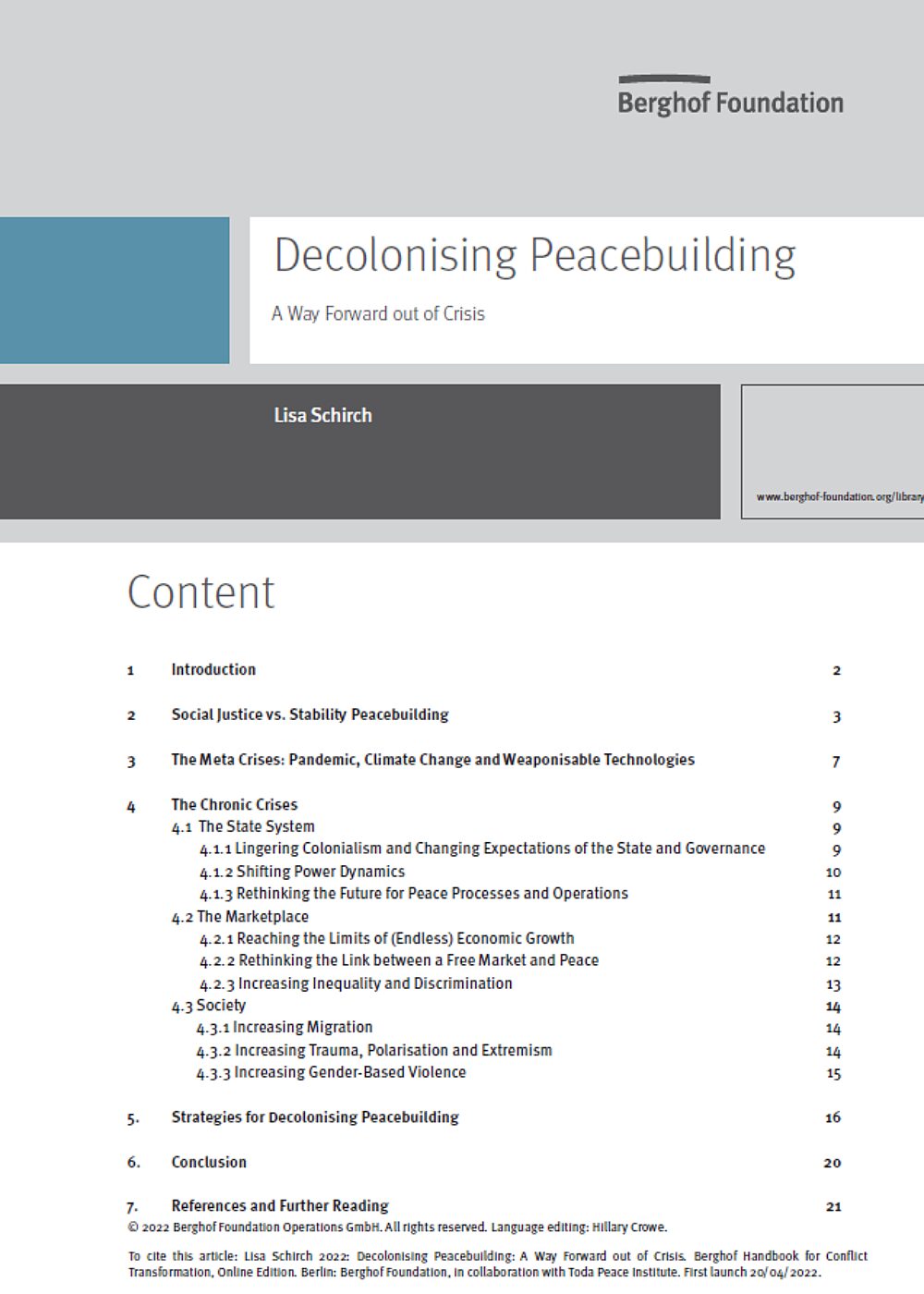
Decolonising peacebuildingA way forward out of crisis
A shifting state system, a dysfunctional market and a restless global society face rising economic inequality and mass migration, accelerating polarisation and extremism, and urgent demands for decolonisation, racial justice and an end to gender-based violence. Current economic and political models offer little reprieve, and in some cases seem to be fuelling disorder rather than promoting the order or stability they aim to achieve. How will the peacebuilding field respond or transform given these challenges?
- Year2022
- Author(s)Lisa Schirch
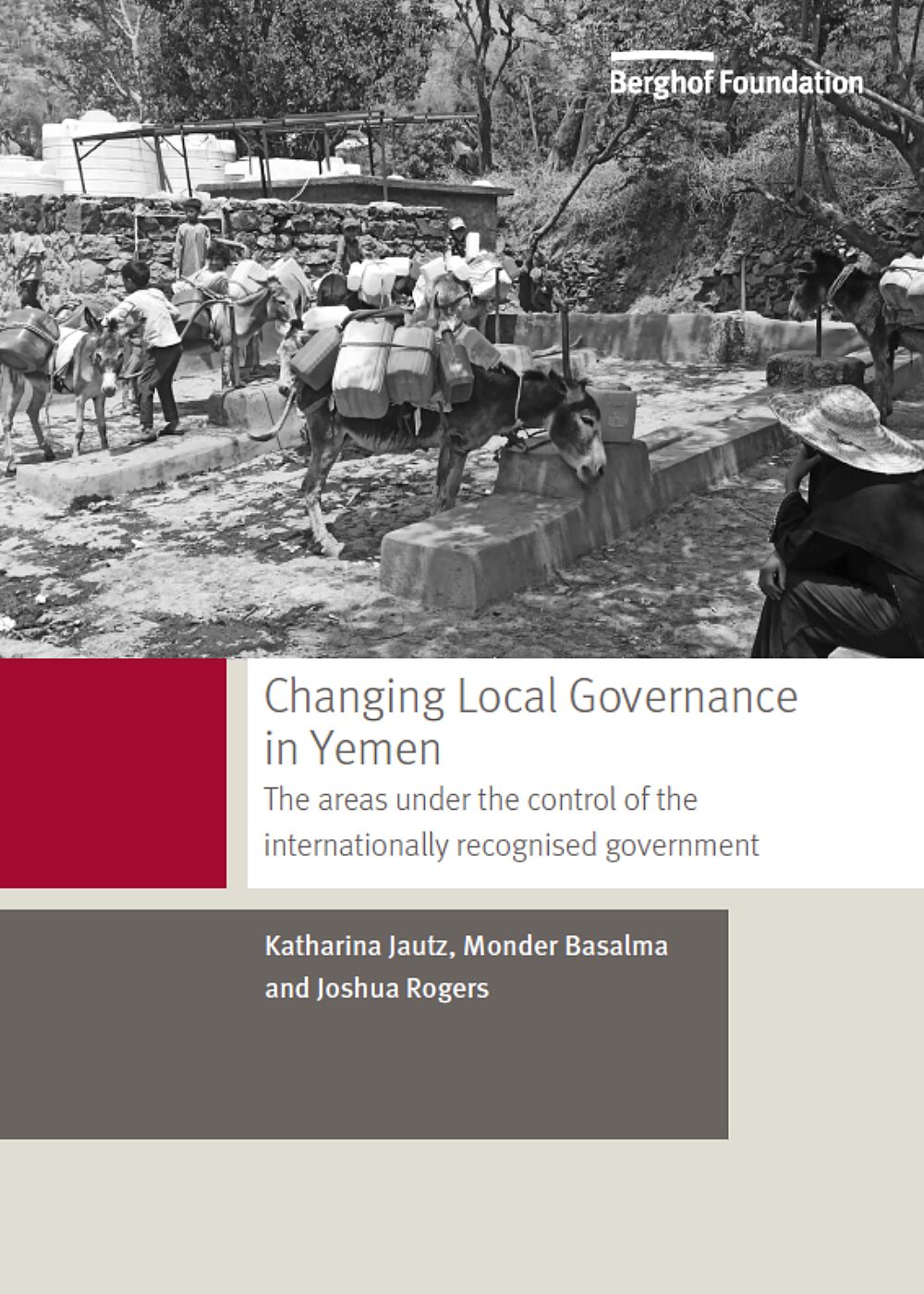
Changing Local Governance in YemenThe areas under control of the internationally recognised government
Local governance is changing in Yemen, with far-reaching effects on the way state institutions function, on central-local relations, and on service provision and citizens’ experiences of the state. Earlier Berghof research (Rogers 2020) highlighted the ways in which war and Houthi policy were re-drawing central-local relations and the functioning of local governance in the areas under Ansar Allah’s control. This paper complements that investigation by examining the changes under way in the areas under the control of the internationally recognised government.
- Year2022
- Author(s)Katharina Jautz, Monder Basalma, Joshua Rogers
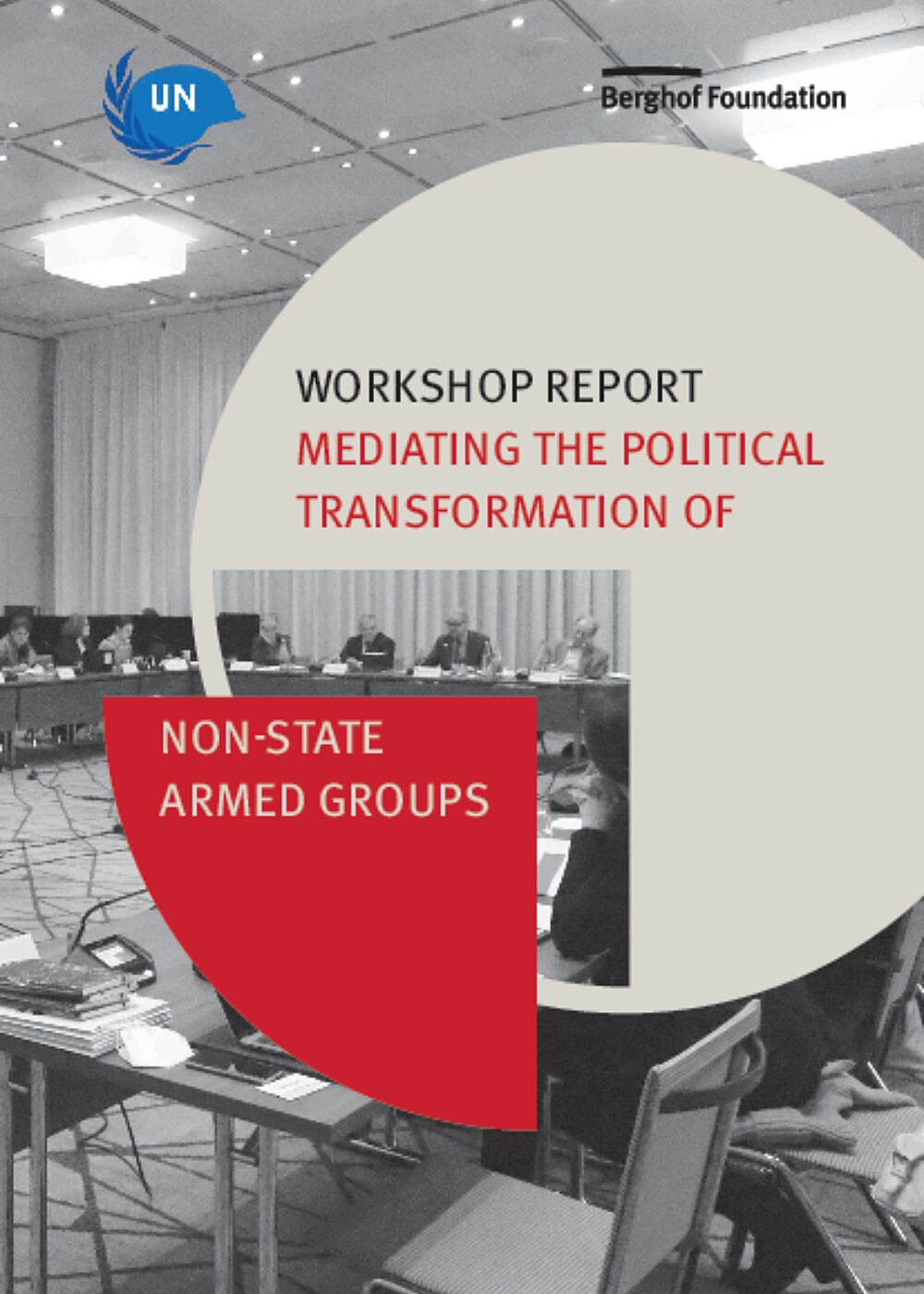
Mediating the political transformation of non-state armed groupsWorkshop report
Together with the United Nations DPO DDR section, our team working to improve international support to transformation processes of non-state armed groups after wars and conflicts, organised a workshop with international experts in Berlin.
- Year2022
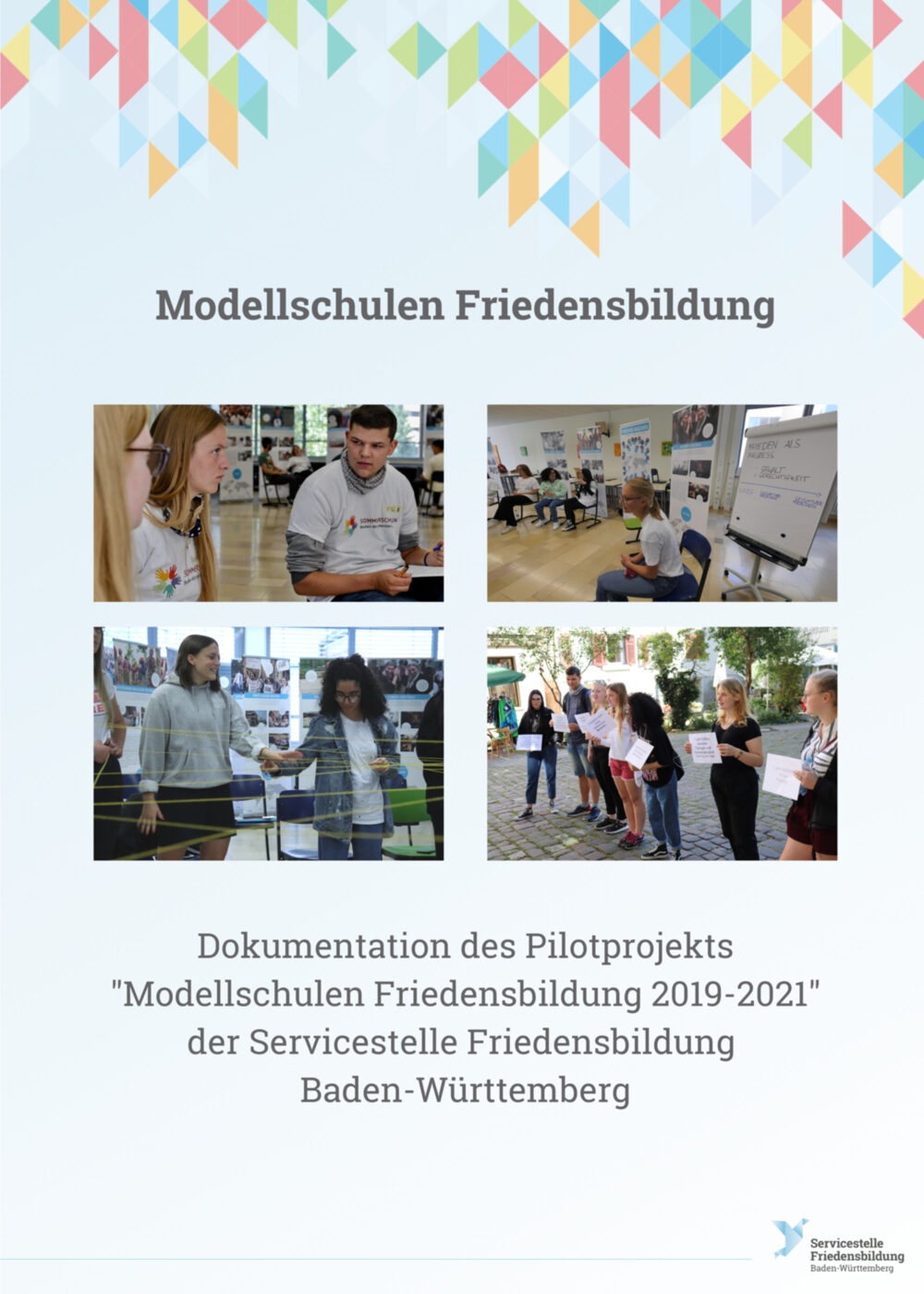
Modellschulen FriedensbildungDokumentation zum Pilotprojekt
Kriege in vielen Weltregionen, Polarisierung, Hass und Hetze in der eigenen Gesellschaft und globale Krisen wie der Klimawandel und die Pandemie schüren massiv die Zukunftsängste von Kindern und Jugendlichen. Sie suchen nach Antworten, wie das Zusammenleben im Kleinen und Großen gelingen kann. Schulen leisten einen großen Beitrag, wenn sie ihren Schüler*innen Lern- und Erfahrungsräume bieten, in denen sie kreative und lösungsorientierte Antworten auf aktuelle Herausforderungen suchen können. Schüler*innen wollen die Möglichkeiten zum gewaltfreien, konstruktiven Umgang mit Konflikten, Hass und Gewalt kennen lernen sowie Ermutigung und Befähigung zu eigenem (Friedens-)Engagement erfahren.
- Year2022
- Author(s)Anne Kruck, Dr. Julia Hagen